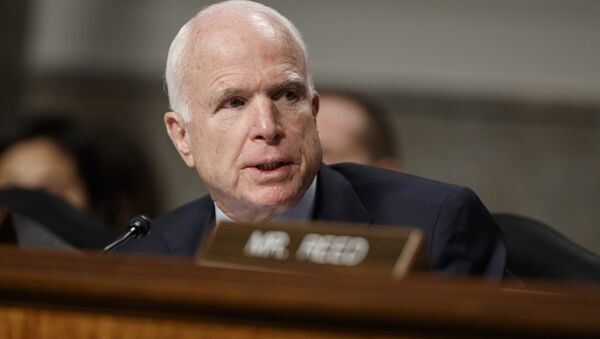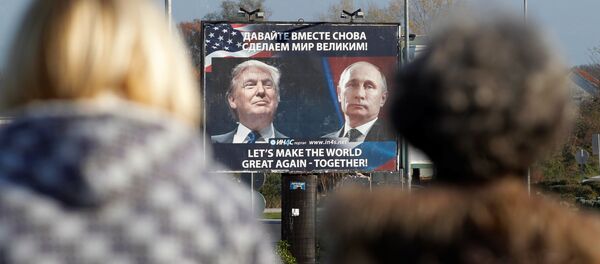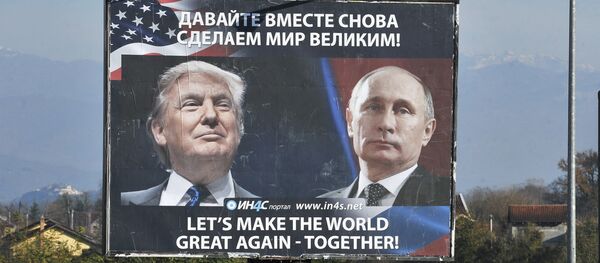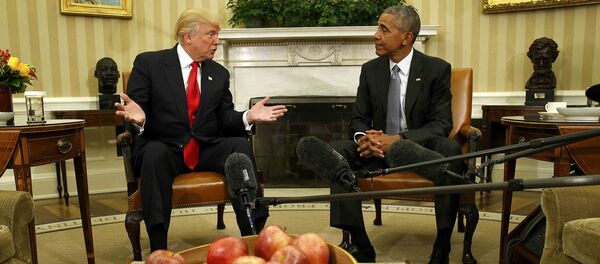Last Week in Power
Outgoing United States President Barack Obama wants to further complicate the situation for Donald Trump’s administration, including by prolonging anti-Russian sanctions, according to Serge Sudakov, a specialist in US politics and professor at the Academy of Military Sciences.
"Trump should understand one thing – even in his six remaining days as the US president Obama wants to prevent Trump from conducting his planned political course towards Moscow," Sudakov said in an interview with RT.
On Friday, Obama extended for one year sanctions against Russia, which were imposed in 2014 after the Crimean referendum and the beginning of the Eastern Ukrainian conflict.
Future of US-Russia Cooperation
In order to abandon Obama’s anti-Russian approach, Trump will need to convince the Congress and the American people that having normal ties with Russia will be good for the US.
"This requires having common interests between Washington and Moscow," the expert noted.
Earlier, Trump said that "Having a good relationship with Russia is a good thing, not a bad thing. Only ‘stupid’ people, or fools, would think that it is bad! We have enough problems around the world without yet another one."
However, the current prospects of building cooperation between the US and Russia are not promising.
"For Trump, the principal area of cooperation is fighting Daesh. This would lay the groundwork for the removal of sanctions. But he hasn’t named any other conditions. This is bad for Russia because as for now Trump wants to cooperate with Russia only in one direction. Thus, Russia looks like an instrument in fighting Daesh. But what else?" Sudakov pointed out.
The analyst said that new common interests could include economic problems, humanitarian issues, collective security and new joint US-Russian projects.
"However, Trump has kept silent on this," he added. "Trump has taken a wait-and-see attitude, in order to delay as long as possible the removal of the sanctions against Russia. As soon as he tries to do that, he will face a hawkish opposition in the Congress."
Earlier this week, a bipartisan group of US Senators led by led by John McCain (R-AZ) and Ben Cardin (D-MD) introduced a legislation aimed at implementing sanctions against Russia.
Meeting With Putin
Sudakov suggested that possible talks with Russian President Vladimir Putin could help Trump figure out his priorities in the foreign policy.
"Such a meeting would mean that Trump knows what he can offer to his counterpart. A personal meeting [between Trump and Putin] is very important. It will help determine further steps in developing bilateral ties," he said.
"During such talks, Trump is unlikely to tell lies and dodge direct questions. I think that President Putin would ask him certain answers and would wait for answers. Trump will have to decide – we are foes or we are friends," the analyst added.
"In the coming six months, he will have to build relations with the Congress. Only after he’s done with that, Trump will be able to take concrete steps in politics," Sudakov said.
'Honeymoon With Congress'
Sudakov’s assumption was echoed by Yury Rogulev, director of the Franklin Roosevelt Center for American Studies at the Moscow State University.
"Usually, the new US president has a certain period of time, some 100 days or more. It’s called the honeymoon period, for the president, the Congress and media. It is believed that the first three months in power are enough to lay the groundwork for presidency," Rogulev said.
"There will be no dramatic changes in the policy of the US presidential administration, not only because he will need to share views with foreign partners, but also because many of the Obama administration’s programs will continue to run under Trump," the analyst explained.
Obama’s Pique
As for Obama’s decision to extend sanctions, Rogulev said it was expected.
"Their prolongation was expected because of the logic Obama’s administration has followed. They regard Russia as the principal enemy. We couldn’t expect that Obama’s administration would revise this approach," he said.
This move was driven by resentment, the expert added. By doing this, Obama showed his discontent, but at the same time complicated life for the next administration.
"Relations between Moscow and Washington have nosedived during the years of Obama’s presidency. He failed to get them back to normal," Rogulev explained.







